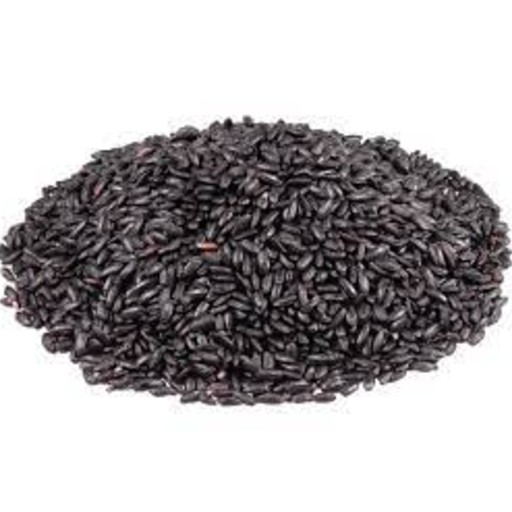Black Rice

Black Rice
Black Rice, is also known as forbidden rice, purple rice.
Black rice is a range of rice types of the species Oryza sativa, some of which are glutinous rice. Black rice is also known as 'Forbidden Rice' in ancient China since only those belonging to the upper class could afford to eat it.
Nutritional Benefit of Black Rice:
According to article by Ms.Kelli McGrane (MS.RD) on 5th November 2019, published on “Healthline”, Black Rice,
1. Is good source of several nutrients. Black rice is a good source of several nutrients, particularly protein, fibre, and iron.
2. Rich in antioxidants. Research shows that black rice contains over 23 types of antioxidants and has the highest antioxidant activity of all rice varieties.
3. Anti-inflammatory, antioxidant and anticancer. Anthocyanin is a pigment that’s responsible for the black-purple colour of forbidden rice. It’s also been found to have potent anti-inflammatory, antioxidant, and anticancer effects.
4. May boost heart health. Black rice contains antioxidants that have been shown to help protect against heart disease. However, more research is needed to understand black rice’s effects on heart disease.
5. May have anticancer properties. Early research suggests that the anthocyanins in black rice may have strong anticancer properties, but more studies are needed.
6. May support eye health. Black rice contains the antioxidants lutein and zeaxanthin, both of which have been shown to protect your retina from potentially damaging free radicals. While anthocyanins may also protect eye health, research in humans is currently lacking.
7. Naturally gluten-free. Black rice is naturally gluten-free and can be a good option for those with celiac disease or gluten sensitivity.
8. May aid weight loss. Given that black rice is a good source of protein and fiber, it may aid weight loss. Also, while animal studies have suggested that anthocyanins may have benefits for weight loss, more research in humans is needed.
9. Lower blood sugar levels. Animal studies suggest that eating black rice and other anthocyanin-containing foods may help reduce blood sugar levels in those with type 2 diabetes. Human studies are needed to confirm these effects.
10. May decrease your risk of non-alcoholic fatty liver disease (NAFLD). A study in mice found that adding black rice to a high fat diet significantly reduced fat accumulation in the liver.
